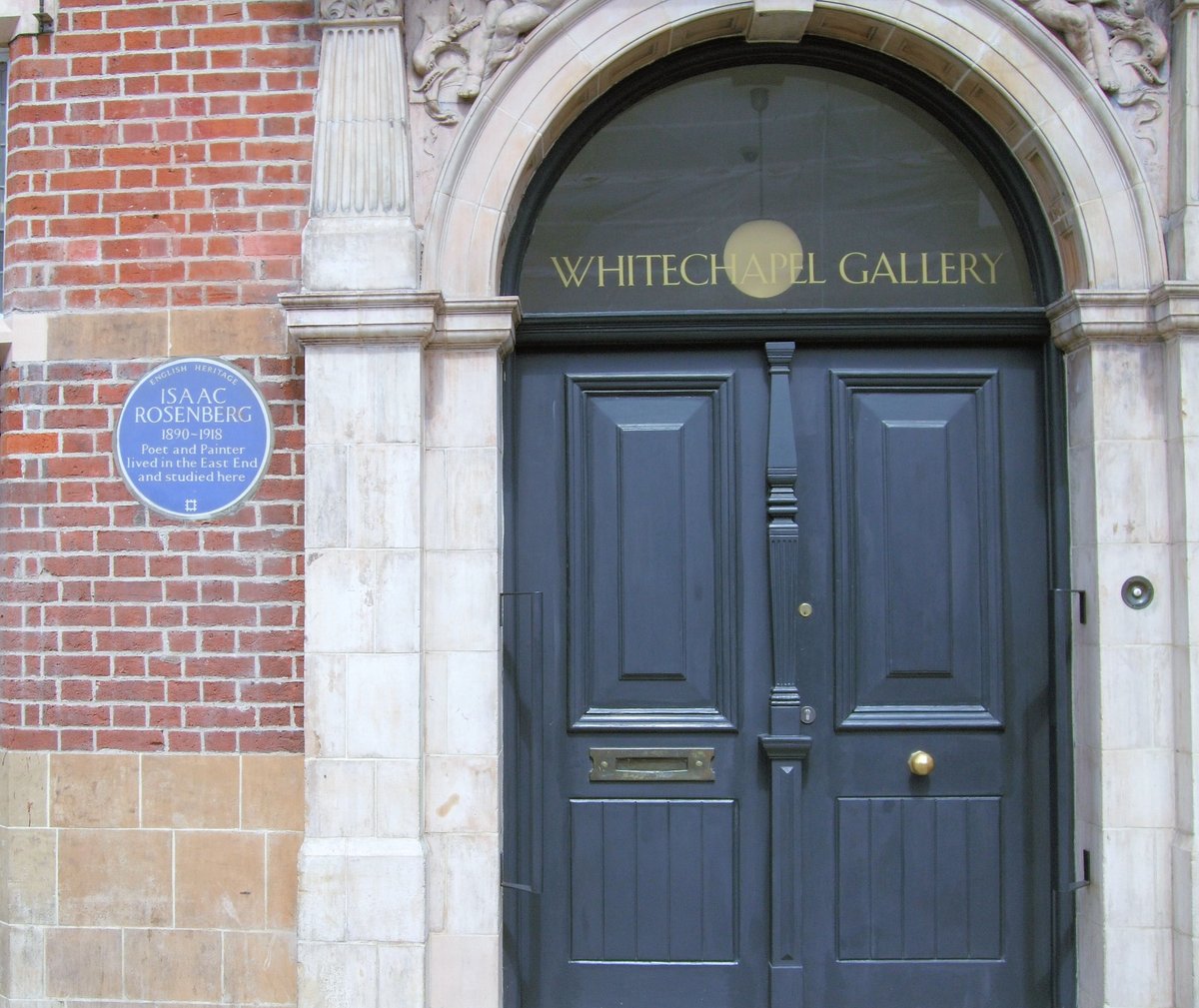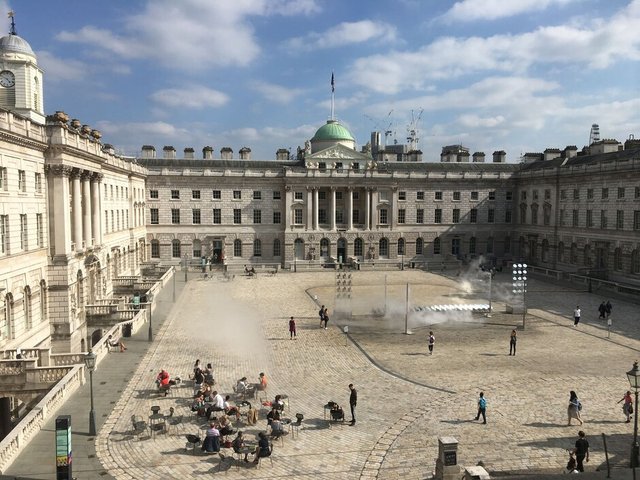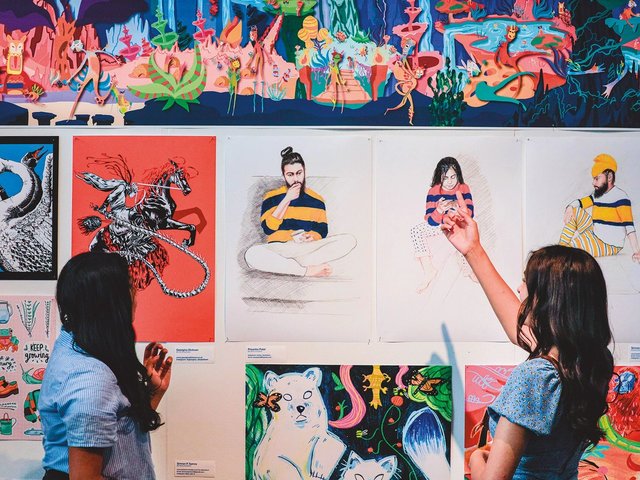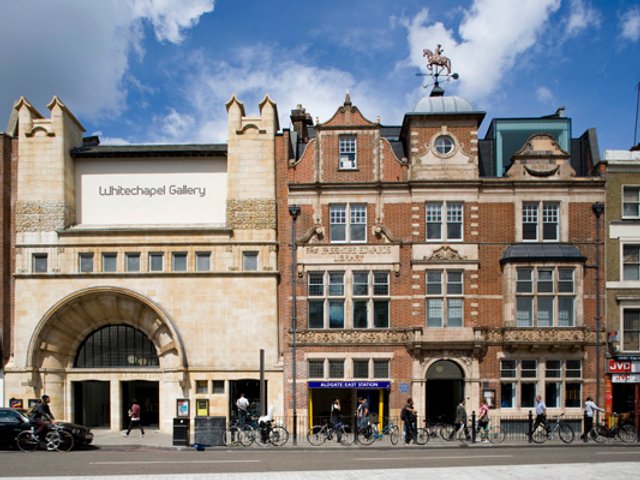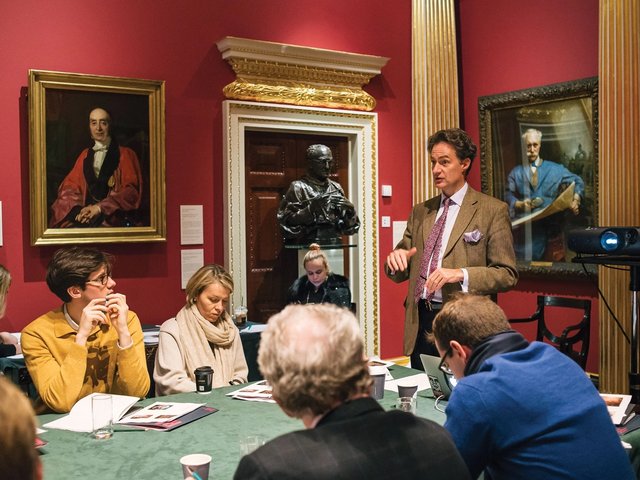Whitechapel Gallery in east London and London South Bank University (LSBU) are winding down their renowned joint Masters (MA) programme in Curating Art and Public Programmes. The Whitechapel Gallery says in a statement that following internal discussions, informed by an analysis of the first two years of the programme, the partner institutions have decided that this will be the last year of this particular initiative.
“Whilst this marks the end of the collaborative MA in this format, we are actively looking at other ways to develop new initiatives that combine our respective expertise to deliver educational and professional opportunities in the contemporary visual arts world for individuals, particularly for those who have traditionally been under-represented,” the gallery and university said in a joint statement.
Advertised highlights of the MA programme include “access to Whitechapel Gallery and its staff… and first-hand exposure to the devising, researching and implementation of art exhibitions and public programmes.” Earlier this year, Whitechapel Gallery said that it was committed to the programme which launched in September 2021.
However, the Whitechapel tells The Art Newspaper that the “Masters has inevitably drawn quite heavily on our staff to deliver it to the high standard it has, and feedback has indicated that the current form isn’t sustainable. Given the funding pressures on universities too, we also felt that the course fees would discourage those we most wanted to reach.”
The fees for the full-time course in 2022-23 were £10,180 for home students and £17,500 for international students including European Union participants. A higher education advisor, who preferred to remain anonymous, says that the fees for this Masters are the lowest of all accredited curating courses in the UK. "The MA is fairly priced," he says.
A source close to the course stressed meanwhile that during the "professional placement" module students were required to undertake at the Whitechapel Gallery, “staff were approachable and considerate, but also heavily overworked which affected our experience”.
Masters art and curating courses should possibly be less institution centred and pivot towards more alternative ways of learning—overseen by artists and creative practitioners for instance—says the source. “Nevertheless it was a valuable experience and very insightful into how to work within the art world.”
Meanwhile, LSBU has confirmed funding for a new collaborative PhD project on digital programming, with a student receiving a full scholarship for three years and supervision jointly shared by both institutions.
According to the PhD abstract outlined by Geoff Cox, professor of art and computational culture, at LSBU, “there remains a general lack of awareness of how wider cultural practices have responded to and been shaped by networked technologies… the invitation for proposals is to explore these broad areas of interest in the context of a working arts institution in support of the ongoing development of ‘Digital Whitechapel’ as part of the gallery’s new strategy.”
The Masters move is part of a general shakedown. Earlier this year six full-time members of staff—including three curators—were made redundant at the Whitechapel Gallery as part of a restructure. According to the gallery’s annual report for 2021-22, the gallery received income of £4.5m and incurred expenditure of £4.7m on total funds, resulting in a deficit of £73,016 after investment gains.


